We seek to encourage young people and motivate them to develop their potential, to work on their talents. The young generation is often labeled with letters and, when we reach the end of the alphabet, we switch to numbers. Generation Y, Z and millennials – we try to evaluate them, to understand them and to predict their role in future societies. All of this should help us to offer them appropriate education, social and technology skills, and provide job opportunities to assist them in their future career and life.
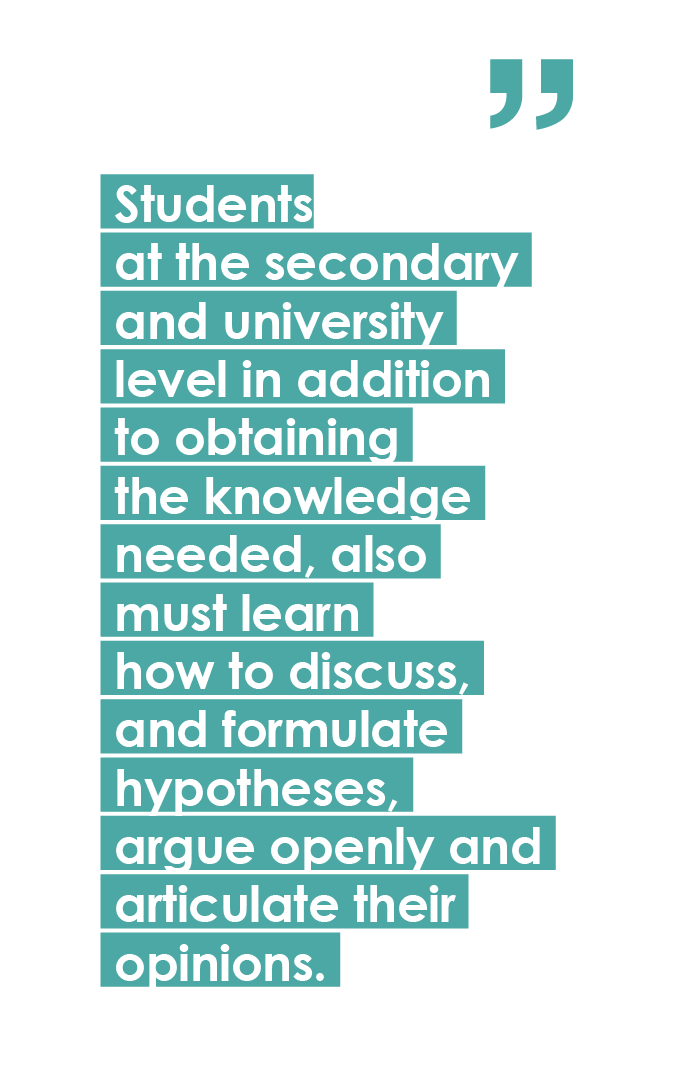 Hand-in-hand with this, there is a brain drain, as the intellectual elite leave to live and work in other countries, a lack of a skilled workforce and an increased social gap between the different layers of society.
Hand-in-hand with this, there is a brain drain, as the intellectual elite leave to live and work in other countries, a lack of a skilled workforce and an increased social gap between the different layers of society.
Over 25 years and via programs administered at the commission, we have been cooperating with high schools in all regions. We recruit university students, academics and professionals by offering grants based on their requirements to return from the U.S. after finishing their stays and to implement their knowledge gained and experience at Slovak institutions. We also offer grants to U.S. experts, researchers, students and English teaching assistants across the spectrum of Slovak academic and research institutions.
In the 90s, the technical and natural sciences were better developed than the humanities in Slovakia. They were under less political influence, and could often communicate with foreign institutions and exchange information even under the totalitarian regime. Today, Slovak students and researches are often successful in international competitions for grants and awards in STEM disciplines. In the humanities, the content and form of teaching was not very relevant in the past, and unfortunately, not much has changed. Students at the secondary and university level in addition to obtaining the knowledge needed, also must learn how to discuss, and formulate hypotheses, argue openly and articulate their opinions. They need to talk about their goals and interests and formulate what they would like to accomplish in their future plans and careers.
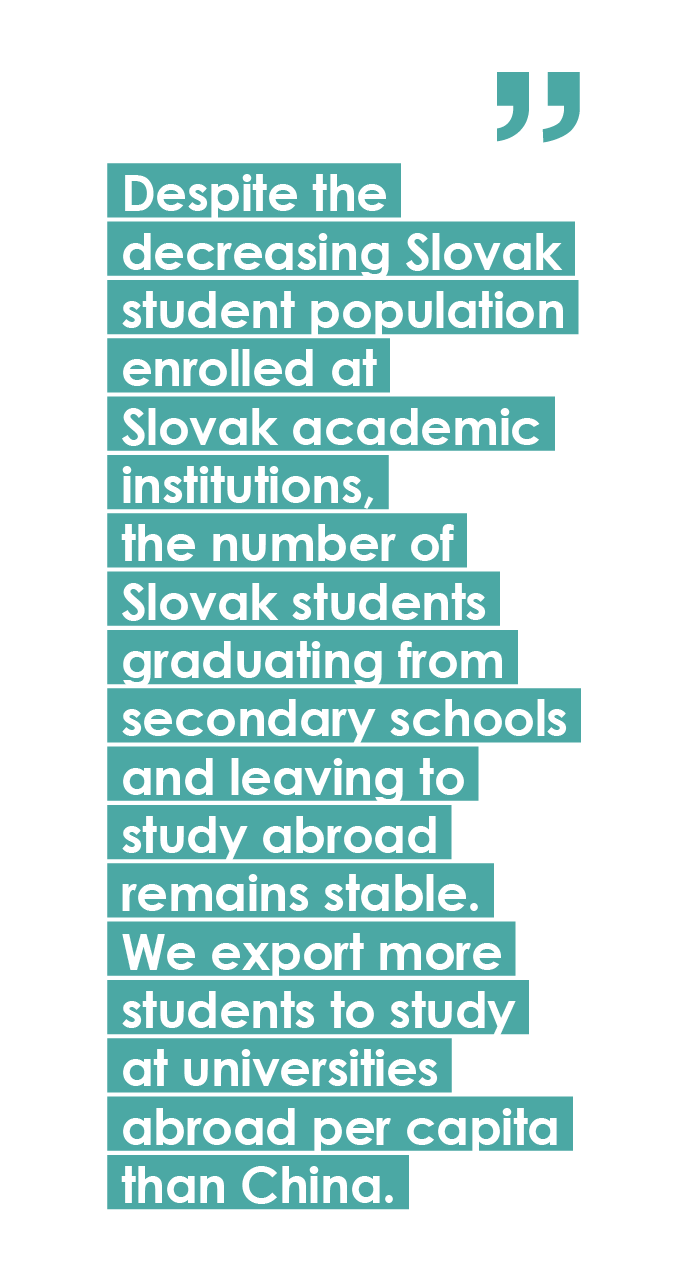 There are many problems in the Slovak educational system. However, Slovak education produces a large number of students who successfully compete for admission at foreign universities. Despite the decreasing Slovak student population enrolled at Slovak academic institutions, the number of Slovak students graduating from secondary schools and leaving to study abroad remains stable. We export more students to study at universities abroad per capita than China. The education sector is still experiencing some successes, but this success is not seen in Slovak society.
There are many problems in the Slovak educational system. However, Slovak education produces a large number of students who successfully compete for admission at foreign universities. Despite the decreasing Slovak student population enrolled at Slovak academic institutions, the number of Slovak students graduating from secondary schools and leaving to study abroad remains stable. We export more students to study at universities abroad per capita than China. The education sector is still experiencing some successes, but this success is not seen in Slovak society.
Education, business and education, human capital, dual education, internationalization of education – these are themes that everybody is looking at, whatever the target audience. Government, regional and non-profit groups and institutions are investing expertise, time and money in evaluating, proposing and recommending strategies, reforms and providing evaluations and criticism of the educational system. All these initiatives do the same in parallel.
Hopefully, at some point all these efforts will come together to develop a strategic program, seeking to depoliticize, make more effective and streamline the public administration of financial funds, legal frameworks and system standards that will enable academic institutions, students, teachers, parents and partners to implement strategies and create long-term partnerships.
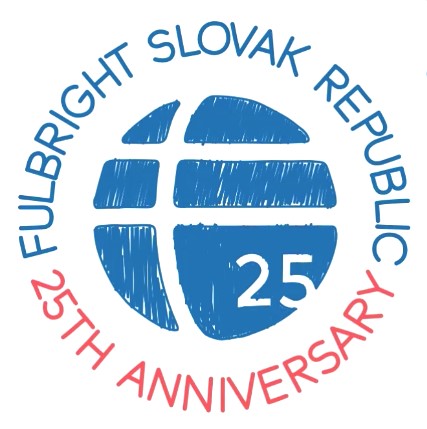

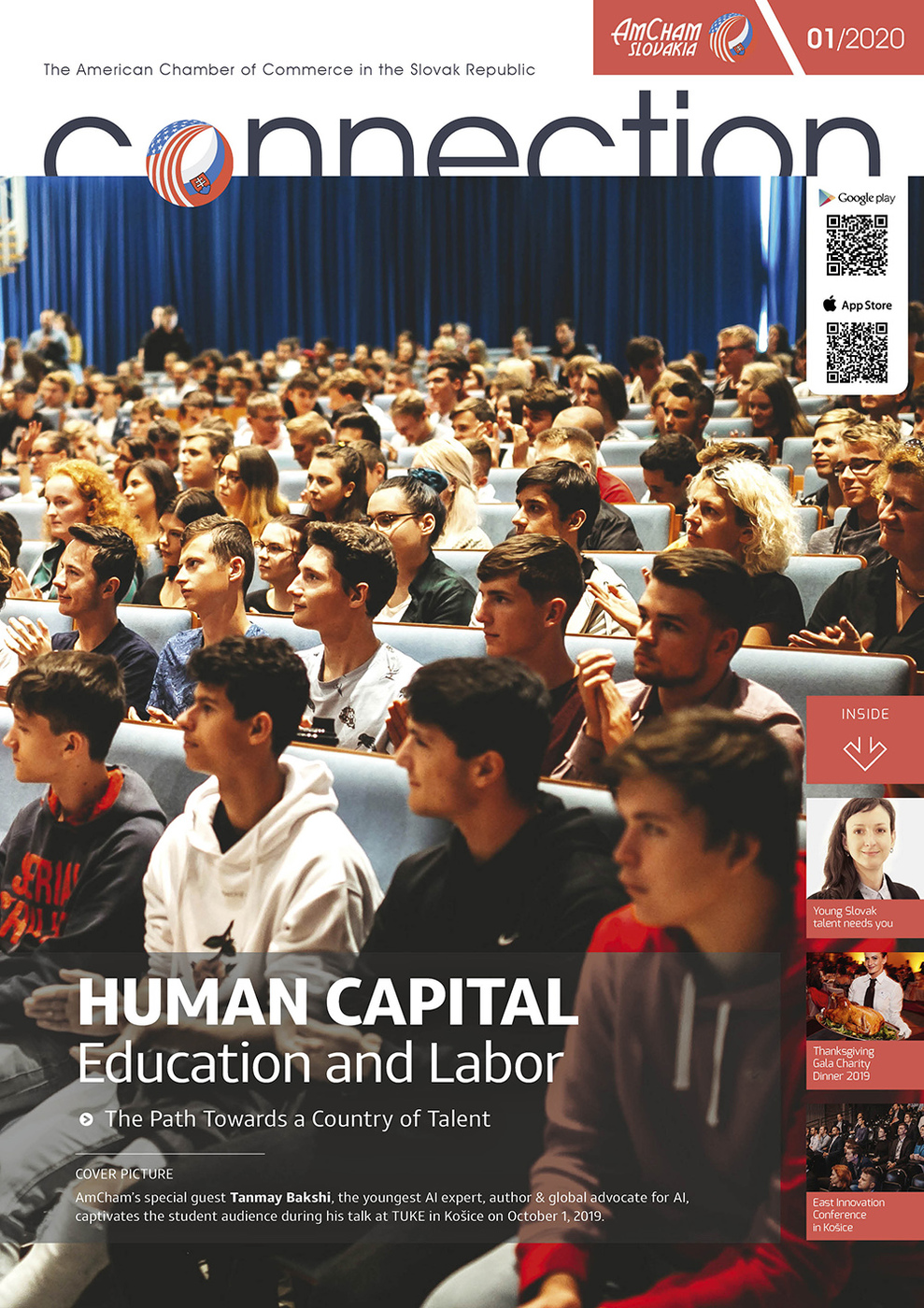
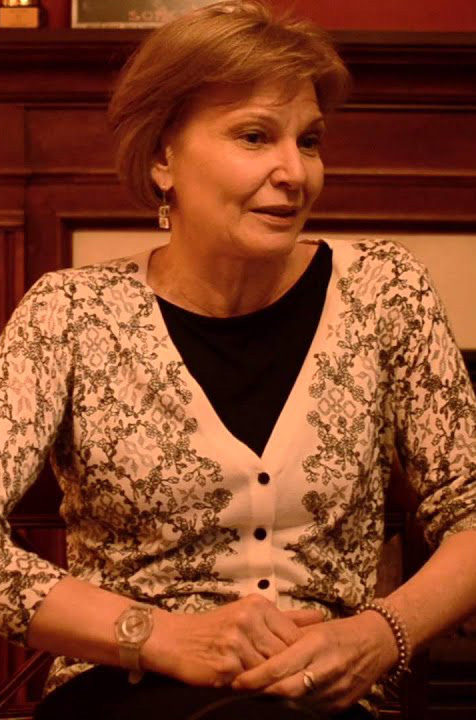
Follow us